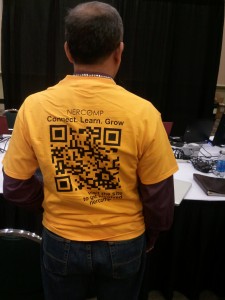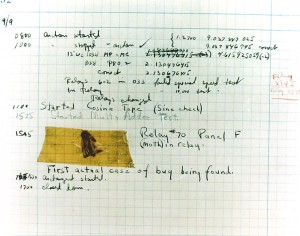 I attended yet another excellent NERCOMP annual conference from March 12-14. I am not saying this simply because Wellesley was very well represented and all of our presentations were VERY well received 🙂 It is a small enough conference where you can establish long lasting partnerships and catch up with others on what is going on. We all wore color coded T-shirts with QR code strategically placed on the back and because the theme was Mardi Gras, wore some beads! “Gold color” represented power – I am a Board member 🙂
I attended yet another excellent NERCOMP annual conference from March 12-14. I am not saying this simply because Wellesley was very well represented and all of our presentations were VERY well received 🙂 It is a small enough conference where you can establish long lasting partnerships and catch up with others on what is going on. We all wore color coded T-shirts with QR code strategically placed on the back and because the theme was Mardi Gras, wore some beads! “Gold color” represented power – I am a Board member 🙂
I was part of a leadership forum on Monday where we discussed a paper by Clayton Christensen called “Disrupting College“. It is a long 70 page position paper where, Christensen argues that disruptive technologies, especially online learning, should be adopted by the academia soon as a way to reduce the cost of postsecondary education while not compromising on the quality. It is a very interesting read. He also agrees that what he proposes may not be directly applicable to many of the elite institutions, however, not keeping on top of it and developing strategies is highly recommended.
 We began the long awaited Spring symposium “Liberal Arts Learning in the Digital Age” yesterday.
We began the long awaited Spring symposium “Liberal Arts Learning in the Digital Age” yesterday. 